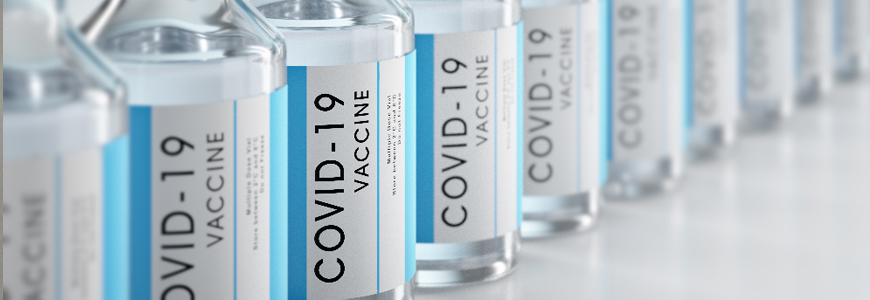Patients with autoimmune inflammatory rheumatic disease (AIIRD) have a higher risk of hospitalization from COVID-19 and should be encouraged to get the coronavirus vaccine, according to recent guidance from an American College of Rheumatology (ACR) task force.
Released in early March 2021, the guidance encourages COVID-19 vaccines and provides recommendations to help coordinate the timing of the vaccination with dosages of commonly prescribed immunosuppressive medications. Patients with AIIRDs experience worse outcomes from the coronavirus than the general population, the ACR notes.
Duke rheumatologist Rebecca Sadun, MD, PhD, a member of the ACR task force that prepared the recommendations, urges clinicians to share the guidance proactively with patients and promote vaccinations.
“Based on the methodology of these vaccines, we do not expect the vaccine to cause flares in well controlled disease, and we are optimistic that even patients with active disease will tolerate the vaccine well,” Sadun says. “The obvious question facing patients and doctors is whether patients should be vaccinated if they are taking immunosuppressing medications. The clear answer is yes.”
The task force guidance encourages clinicians to view the recommendations as a “living document” because of ongoing coronavirus-focused research. The recommendations are presented as guidance—not formal guidelines, Sadun emphasizes.
“In the future, we hope to provide definitive, evidence-based guidelines for COVID-19 vaccination,” she says. “But for the moment, we characterize these recommendations as guidance. They represent informed expert opinion based on what we know about other vaccines in patients with rheumatic diseases.”
The guidance is helpful in combating ambiguous or incorrect information patients see in social media or Internet-based content, Sadun says. “There are many reasons to believe the patients with autoimmune inflammatory rheumatic disease will benefit from the vaccine.”
Some patients may receive only partial benefit from the vaccinations because of immunosuppressant medications. But even with a partial response, the benefit far outweighs the risks of not getting the vaccine, she adds.

Guidance related to dosing recommendations
Dosing recommendations for specific immunosuppressant medications are provided in detail in the ACR document. Highlights include:
Methotrexate and JAK inhibitors: Withhold both medicines for one week after each dose of the vaccine; for a one-dose vaccine, providers may opt to hold methotrexate for two weeks following the vaccine.
Abatacept SQ: Withhold SQ abatacept both one week prior to and one week after the first COVID-19-dose; no interruptions required around a second vaccine dose.
Abatacept IV: Time vaccine administration so first vaccination will occur four weeks after abatacept infusion and postpone the subsequent abatacept infusion by one week (a 5-week gap in total). No medication adjustment is required for a second vaccine dose.
Cyclophosphamide: Time drug administration so that it will occur approximately one week after vaccine doses, when feasible.
Rituximab: Assuming the patient's COVID-19 exposure is low and can be mitigated by preventive health measures such as self-isolation, schedule the first shot of a 2-vaccine series to be approximately 4 weeks prior to next scheduled rituximab cycle; after vaccination, delay rituximab 2-4 weeks after 2nd vaccine dose, if disease activity allows. For a 1-dose vaccine, the vaccine can be given around the time when the rituximab would otherwise be due, and the next dose could be delayed 2-4 weeks following the vaccine.
